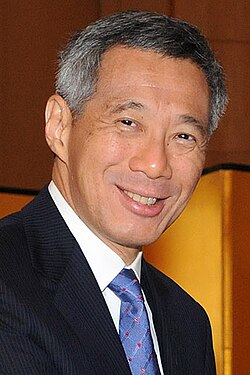Tsolmon Erdéne
Tsolmon Erdéne | |
|---|---|
 Tsolmon in 2010 | |
| 6th Prime Minister of Catam Pon (Appellation) | |
| In office 8 May 1994 – 15 May 2018 | |
| Preceded by | Sarnaj Tsetseg |
| Succeeded by | Naryn Bák |
| MP for Tanjonq Pégar | |
| In office 4 May 2012 – present | |
| Preceded by | Tzorigtoj Áv |
| Personal details | |
| Born | 10 February 1952 Tanjonq Pégar, Cixato Province, Catam Pon |
| Nationality | Catamese |
| Political party | People’s Party |
| Spouse | Xo Cinq-Erdéne |
| Children | 4 |
| Alma mater | Cixato University |
| Profession | Public Administration Military General |
Tsolmon Erdéne (ipa: t͡sʰoɮmoɴ eʀdəne; Catamese: 𐑟𐑷𐑤𐑥𐑷𐑯 𐑧𐑮𐑓𐑳𐑯𐑧) was the 6th Prime Minister of Catam Pon, and was a well-known reformer who helped to push the country through the final post-economic collapse stagnation in the early- to late-2000s. He is the son of the 4th Prime Minister, Tzorigtoj Áv, who died during in 2012, over halfway through his son's reign.
He served in the Armed Forces of Catam Pon (CAF) between 1971 and 1984 and attained the rank Brigadier-General. He resigned from the CAF in 1984 to enter politics.
Political Views==
National Democracy and democratization
Much like the rest of the PP, Tsolmon has long been an advocate of Patolian-style National Democracy, though he acknowledged a certain "necessary pragmatism" in regard to the democratization of Catam Pon. He believed the government has a "strong role" in forming and shaping an ideal society, something that often transferred over into his rather conservative social views.
Militarization
As a previous brigadier-general in the CAF, Tsolmon was a proponent of re-militarization, which had been halted with the collapse of the Varangian communist party and the Catamese economic collapse.
Reform
Tsolmon's economic reform is credited with fundamentally changing and modernizing Catam Pon's economy, where he temporarily stopped unconditional stagnation-era subsidization, which forced many companies to comply with government policy, moving away from the previous completely laissez faire economy to a heavier handed, but temporary, interventionist economy.